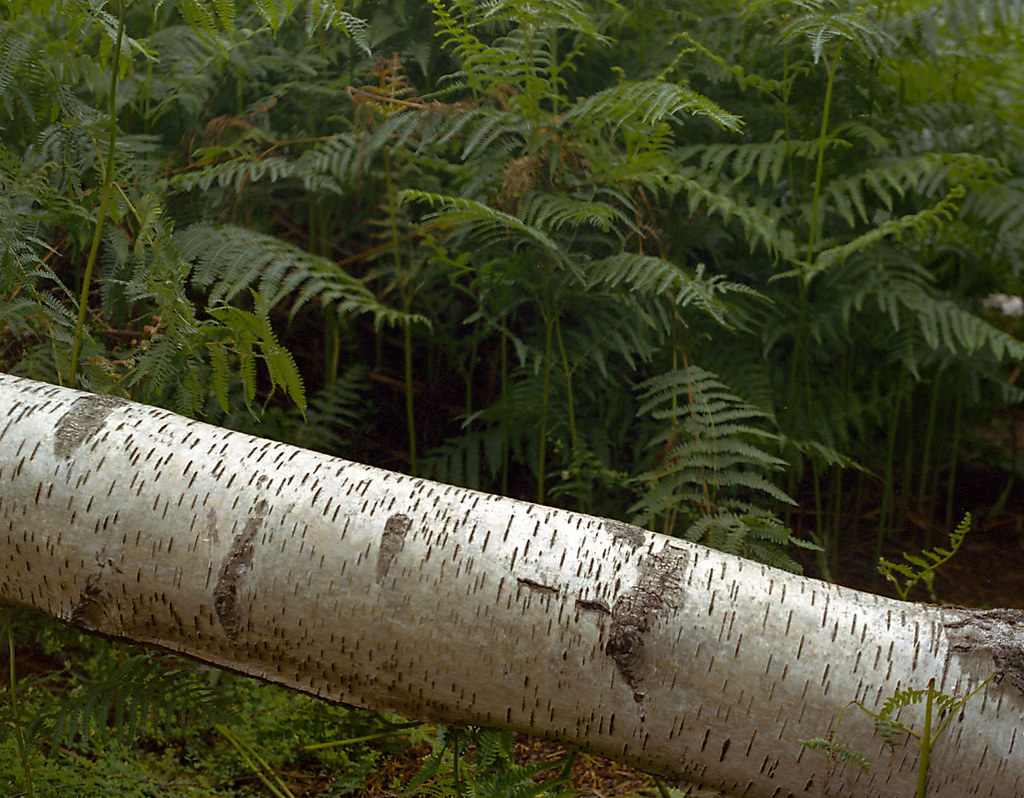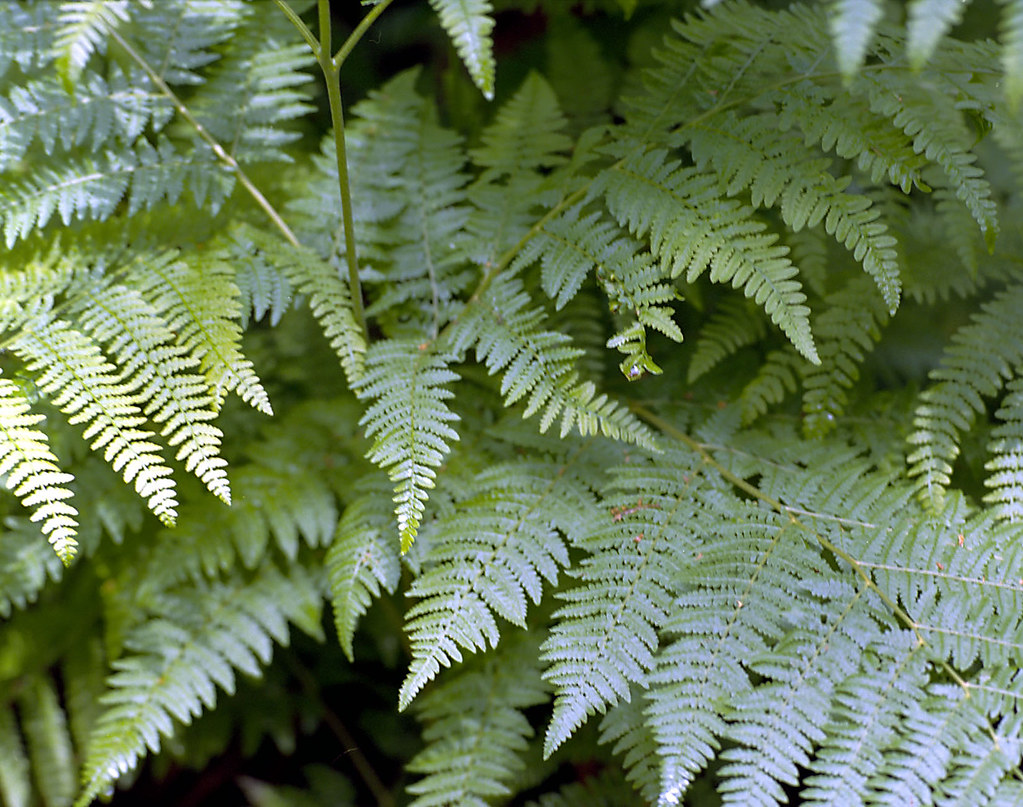Old and New Locations for Summer: Holme Fen and Wood Walton Fen
Yesterday was a strange day weather-wise. The glorious and rare spring weather
had changed to cooler and wetter weather and was not completely unwelcome.
Yesterday however as warmer air moved in ithe weather was very close humid and
almost foggy the air was so dense. Gray clouds lay low as I headed out
mid-morning.
I vaguely had the idea of heading back to Holme Fen. The
last time I had visited
was in March and then it was very much still in a wintery state. I missed the
transformation of spring time and so now I would see it in early summer. It
had changed incredibly. The ground for the most part in winter is swathed in
brown dead bracken beaten flat by the rain and rot. Now in addtion to the
Birch and Oak in full leaf the ferns stood a full meter high and obscured the
ground underneath so thick were they. These are birch forests and unlike thick
conifer forests the ferns seem to get more light and can carpet the whole
forest floor in thick tall stands.
The air was dense and close and very few people were about due to it being a
weekday and the weather not being brilliant. Weather like this for me makes a
place feel closer, more enclosed and intimate. It was quiet except for the
annoying clang of a farmer's digger in the distance.
I brought a camera though not with great enthusiasm. I have recently gone off
photography but I thought I would make an effort. I chose my Mamiya 645 Pro
which I have favored recently. (I am still mourning my broken Fuji 690 GSW.)
With the metered prism finder it is self-contained. For relative simplicity I
brought a 150mm lens and an 80 mm lens and two film backs. Being a such a dark
day I opted for 400 speed film and so brought Ilford HP5+ (black and white)
and Kodak Portra 400 (color).
Later in the day I decided to move location. Wood Walton Fen is a few miles
away and is planned to the part of a grander Great Fen project to attempt to
restore a much larger area to the way it was before the fens were all
drained. Wood Walton fen has a vastly different character to it and will
be the subject of more woodland work in the future. For now this was my first
time visiting and for early summer it was heavily covered in a variety of
vegetation. The area is much more diverse in terms of tree species and has a
variety of bogs, meadows and woodlands intersected by a series of drainage
ditches that are brim full of water despite a very dry spring.
Below are the results and my thoughts on each. As usual when the color is
processed I will revise this post with those results. (This may take some time
as I did not shoot the entire color roll with about 5 images left over.)The
first sectionis from Holme Fen and the second from Wood Walton Fen
Holme Fen
This first one was simple with a fallen tree in the ferns. I like the
composition though to my eye it appears a little out of focus. I recall
struggling with the focus for some reason. Handheld in this light most of
these shots were are around f5.6 so not much mercy from the aperture.
 |
| Color Version |
A delicate simple fern. I like this one a lot as it has a simplicity to it and
it has gradations of light from dark to light bottom to top.
 |
I liked the textured twisted tree trunk here.
 |
By now I found my self on the north edge of the forest looking out over the
adjacent farmlands again. I have photographed this before with the long
furrows receding to the horizon. I took this where the plants were emerging
from the ground and the next one from the same spot some of my earlier
examples were taken.
Yes this is the noisy digger...
I generally like it when I find a bright white birch tree. Here is one
again.
These trees exhibited a range of textures. I fear the closer trunk is out of
focus, Sigh.
I find that close-ups shot with the 150 mm lens are challenging handheld. The
short depth of field makes the composition very delicate and in this one I
fear the almost in-focus fern leaves in the upper left are neither in focus or
out of focus enough and hence a distraction. I had hoped enough could be
picked out of the visual complexity of the numerous small leaves and flowers
to be of interest.
This next one I fussed a lot about. The light was variable as the clouds
thinned. I am learning about these shots to be cautious of leaves and branches
in the foreground. They often are not apparent when focusing as the lens is
wide open and short focus depth of field is poor. However the photo is usually
taken stopped down so leaves and branches practically blurred to invisibility
in the viewfinder are fuzzy distractions in the print. Still a 150 mm lens on
short focus in overcast conditions even with 400 ASA this was shot at 1/60th
ata f5.6. The leaf in the middle of the shot is out of focus. A tripod would
rescue the shot. A shame because it really works otherwise.
Wood Walton Fen
By now I moved location. The reeds have very delicate seed heads I am always
attracted to as they wave about in the wind. Here a single one separated and
was suspended over the water near a bridge. I think the delicate nature of it
conveys a grace very effectively.
As I took the photo I heard a commotion in the nearby canal that sounded like
an animal of some size. After I snapped the photo I moved to investigate and
saw a fox frozen at the edge of the trail staring at me obviously as curious
about me as I was of him. He scurried off down the canal to the next crossing
and disappeared in the thick grass.
Here again the reeds figure across a large meadow is the dense woodland.
This was an unusual sprawling oak whose branches radiated away from the
central trunk in all directions. A huge challenge with depth of field. I tried
to compose in a way to keep most in focus. Again a tripod would have
been useful and probably a wider lens than the 150 mm I used.
I took two versions of the next photo. This is the first. The second I
opened up a stop to try and whiten the trunk and took a step back. This one is
the best of the two I think. What captured my attention is the way the bark
weathered in defined even levels of white to dark such that it has an almost
topological quality.
The second photo for reference.
The day was more productive than I had imagined and very enjoyable. Wood
Walton was so quiet empty and peaceful. I will be returning as there is so
much to explore there.













Comments